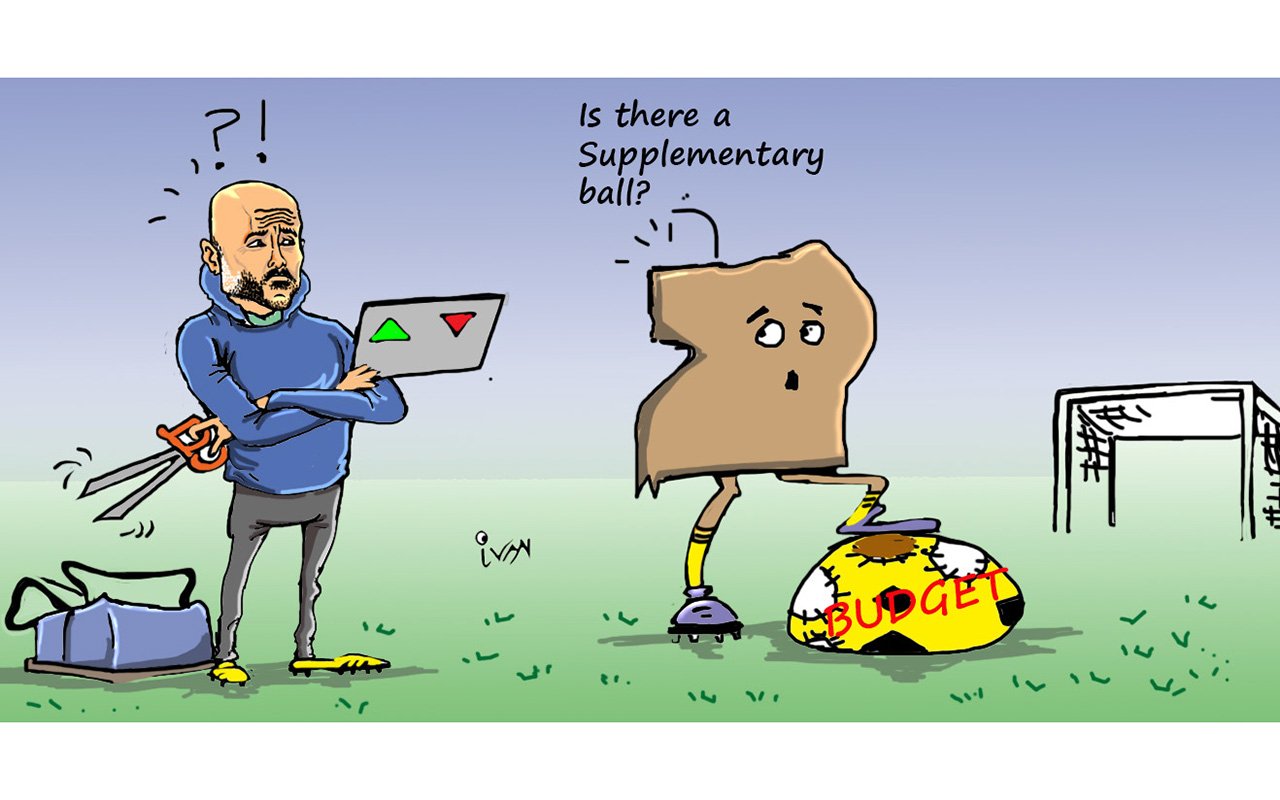All the big men are falling, but its not yet time to start clapping

History has proved that it is easier to steal from any African president’s treasury than tampering with their other belongings.
What you need to know:
History has proved that it is easier to steal from any African president’s treasury than tampering with their other belongings. This could be the reason most government ministers accused of corruption win the support of their appointing authority thereby bouncing back into the same or close positions of power that they allegedly abused. But this is not the same case with ministers accused of breaking other social morals.
In October, the Kenya national football team, Harambee Stars, went to Kampala and behaved badly. All their Ugandan brothers needed was for Harambee Stars to show good neighbourliness, turn a blind eye, and let the Cranes win with just one goal. That goal would have sent Uganda to the Africa Cup of Nations finals for the first time since 1978.
But no, Kenya rained on Uganda’s prospects and, as we say in East Africa, “spoilt for everyone”. But there is one area where Uganda is beating Kenya hands down. Uganda’s anti-corruption court has been busy frying big fish in ways that Kenya’s can’t even dream of.
Former Vice President Gilbert Bukenya was there, and he was denied bail and sent to prison where he stayed for one week. Then everyone scrambled to make sure he made bail.
Two ministers, including the powerful Sam Kutesa (Foreign), who is President Yoweri Museveni’s in-law, followed. Kutesa (quite a jolly chap, actually) was in court with, among others, minister of State for Labour Mwesigwa Rukutana, and influential Government Chief Whip John Nasasira (who served for ages as Works Minister and is also a Museveni man).
Amid loud protests of their innocence, Mr Kutesa and Mr Rukutana “stepped aside” from Cabinet to allow investigations into allegations that they might have dipped their fingers into the money for organising the 2007 Commonwealth Heads of Government meeting in Kampala.
Hot potato
Prof. Bukenya, too, was in court over alleged abuses in the awarding of the contract to supply cars for the Commonwealth meeting. It seemed that President Museveni’s government was finally getting serious with cracking down on graft.
But a few weeks later, Prof. Bukenya’s case was dropped like a hot potato, and the hearing of the Kutesa, Rukutana, and Nasasira case were postponed to eternity. Perhaps, as the big men protested, they were innocent after all.
Corruption allegations claimed some big scalps in Tanzania, too, in February 2008. Then Tanzanian Prime Minister Edward Lowassa, Energy Minister Nazir Karamagi, and East African Cooperation Minister Idrissa Msabaha resigned amid recriminations over their involvement in an energy deal with US electricity firm, Richmond.
However, over the last five or so years, Kenya has surpassed all others in East Africa in taking its ministers for a walk into the woods.
Situation in Kenya
Then Finance Minister Amos Kimunya stepped down in July 2008 after he was embroiled in the controversial sale of the Grand Regency Hotel in Nairobi, which was reportedly purchased by Libyans at a low price. He was reinstated in January 2009 after a tribunal President Mwai Kibaki set up cleared him of any wrong-doing.
Earlier in 2006, Mr David Mwiraria, Mr Kibaki’s first Finance Minister, resigned over the Anglo Leasing scandal.
Mr Kiraitu Murungi, then Constitutional Affairs Minister, also resigned briefly in 2006, after he was tarred with Anglo Leasing paint. He was accused of trying to cover up the case. He bounced back as Energy minister and retained the post after the December 2007 elections.
More recently in October 2010, Mr William Ruto, stepped down as minister for Higher Education over a court case involving land acquisition. He was vindicated when he won the case, but was not reinstated. In August, he was relieved of his ministerial duties altogether.
Last year, Mr Moses Wetang’ula stepped aside amid questions regarding his role in the purchase of diplomatic properties in the Japanese capital, Tokyo. He was reinstated in August, with Prime Minister Raila Odinga saying there was no evidence linking him to the scandal.
That leaves Mr Henry Kosgey, who was sidelined last year following allegations that he abused his powers and granted unacceptable exemptions for car imports. He caught a small break a few days ago when a judge poured a little cold water on the case.
It is not only suspected sticky fingers that East African leaders seem keen to punish. Even hanky panky is seriously frowned upon these days.
In February, Rwandan President Paul Kagame accepted the resignation of his colourful and youthful Sports Minister Joseph Habineza after photos of him, well, playing naughty and tickling two women in a hotel, popped up on the internet.
Re-posted
He was recently rehabilitated with an ambassadorial posting. In February 2009, Liberia’s most senior minister, whose name appropriately is Willis Knuckles, resigned after he admitted being shamed over the publication of pictures of him having a tryst with two women in a local newspaper, The Independent.
Sometimes, big men get into trouble because of both women and money. In July, South Africa President Jacob Zuma sacked Co-operative Governance Minister Sicelo Shiceka for spending 335,000 Rand ($50,000) in state funds to visit his imprisoned girlfriend overseas.
And, of course, there was the politician who courted death in Swaziland. In October last year, Swaziland’s Justice Minister Ndumiso Mamba resigned over an alleged affair with a queen from King Mswati’s harem.
At that time Mswati had 13 wives, and it seems he has since added on at least one more. A keen follower of African affairs will notice that most of the corruption cases come to nothing. In part, to be honest, it is because some of the cases are simply bad from the start — pushed more because the public is baying for blood than because the prosecutors are convinced.
Then, it is also difficult to catch powerful men. Witnesses fear, and some of them probably make the evidence disappear, as we are wont to say in East Africa.
Corruption and promiscuity
In addition, because it seems more dangerous to have an affair with the president’s wife than to steal from his Treasury, one might be tempted to conclude that there has been no real mood swing against corruption in either East Africa, or the rest of the continent.
It would seem that presidents have just become smarter at putting on a show for the public, seeming to punish wrong-doing while not doing anything. Many times, after the dust settles, presidents will arrange for the prosecutors to drop the cases.
The Zambians seem to be among the few Africans who prosecute corrupt politicians seriously, as was evident in how the prosecutors hounded former president Frederick Chiluba.
In 2003, Chiluba was dragged to court and charged with 60 counts of abuse of office.
He died mid this year, a bitter and heartbroken man. But even with that, there have been real changes in fighting corruption. Indeed, even if presidents feel they need to change style on graft, that too is significant.
These changes, though, as the evidence seems to suggest, have not been due to a greater political will to fight corruption, except in countries like Rwanda where President Kagame has become famous for being impatient with long-fingered officials.
They have come from other social and political changes. The first real change in the war against corruption came at the start of 1990s. The end of the Cold War in the mid-1980s led to a wave of democratisation and liberalisation in Africa.
One outcome was the opening of the airwaves. Many countries licenced dozens, and sometimes as in the case of Uganda, hundreds of independent FM stations.
FM stations amplified the level of noise African societies could now make about corruption. The vehicle for this was not just independent news, but the call-in programmes. When corruption scandals break, you will have angry callers in their hundreds dialling in for days, attacking the thieving minister, and denouncing the president for not firing him or her.
Irritating noise
That level of noise can be irritating even to the most stone-deaf president.
Then, at the beginning of the 2000s, the internet started to grow in Africa. Everything from the truth, to rumours, lies, and scandals live longer on the internet than in newspapers, radio or TV.
A story of a corrupt minister will be written about by dozens of bloggers, as opposed to one or two newspapers in the past. And with the arrival of new social media sites like Facebook and Twitter, these scandals are Tweeted, reTweeted, Facebooked, and forwarded millions of times.
Where you had a few brave parliamentarians and investigative reporters jumping on a corruption story, today there are millions of people. And, unlike in times gone by, the story is not just confined to Kenya or Uganda. Everyone in the world has access. By the time a Kenyan in the diaspora blogs about a few stolen bags of maize, it would have become “one of the most shameful episodes in the history of politicians robbing the people of Kenya”.
This has put incredible pressure on presidents and their governments to “change the headlines”, to throw their own side of the story so that if you google the story of minister Fulani “eating” money meant for resettlement of Internally Displaced Persons, a story about how the minister was suspended or sacked by the president should also pop up.
Big but dangerous development
The effect of FM radio, the internet, and social media would still have been minimal if it had not been for another development in Africa over the last 20 years — the sharply increased importance of elections.
There are still many problems with the fairness of elections in Africa. However, an African strongman might organise elections, count the votes, and declare himself winner in a sham election, but the one thing he cannot do any more is NOT hold an election.
In Egypt, for example, this week we saw a discredited military junta insisting on holding elections next week, even when the people don’t want it! So, elections have become central to both democratic leaders seeking a genuine mandate to govern, and despots looking to have a veneer of legitimacy.
Many rural African voters might not understand what a Customs treaty is, or make sense of a candidate’s promise to cut carbon emissions. However, what they all understand is the accusation that a president is soft on corruption, or indeed is himself corrupt. Theft is something you don’t need to explain to any African.
Because leaders seek to control the language of the election, it is always a good defence if a president is able to point to a few ministers who had to step aside to allow investigations, or were indeed dropped, because of corruption allegations.
Corruption has become like adultery. Many people do it, but no one will defend or encourage it publicly any more. And, unlike in the days of our grandfathers, today it results in more divorces and separations. That is progress.




